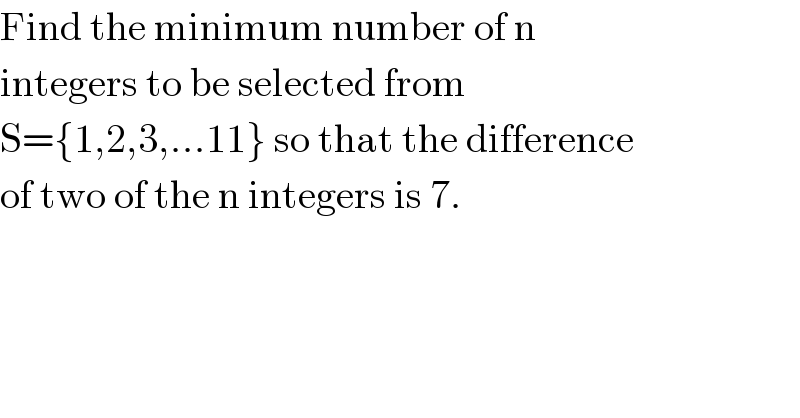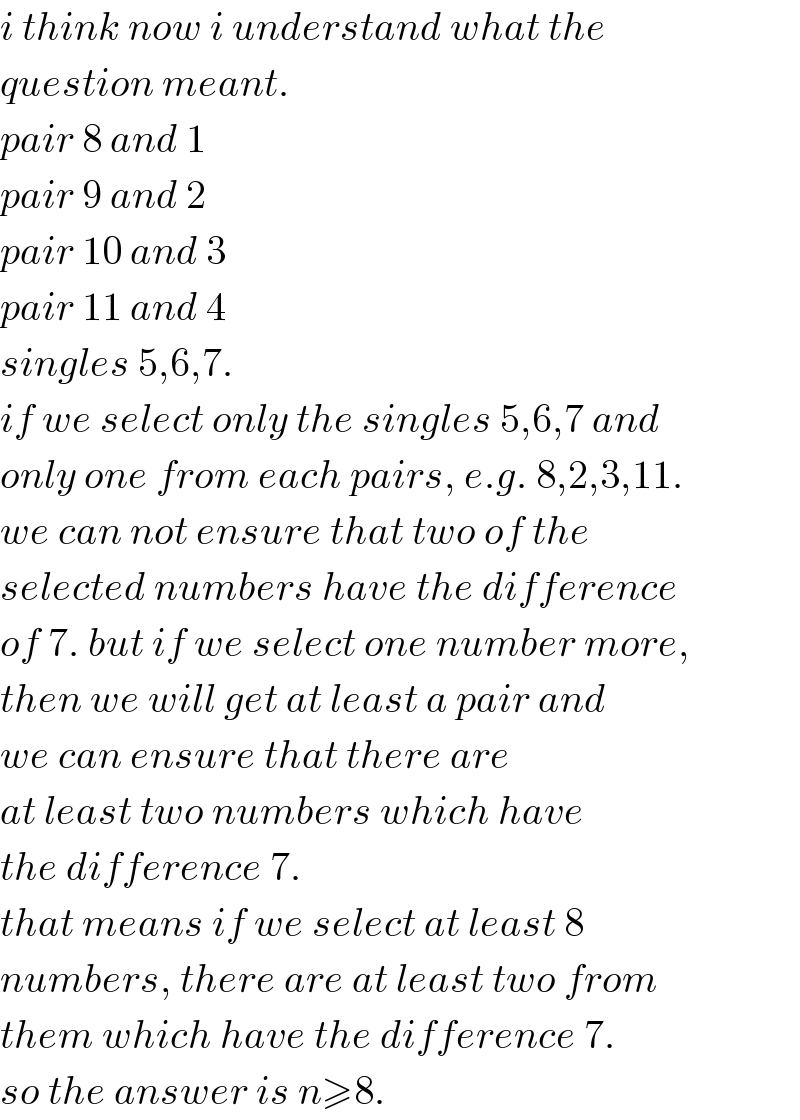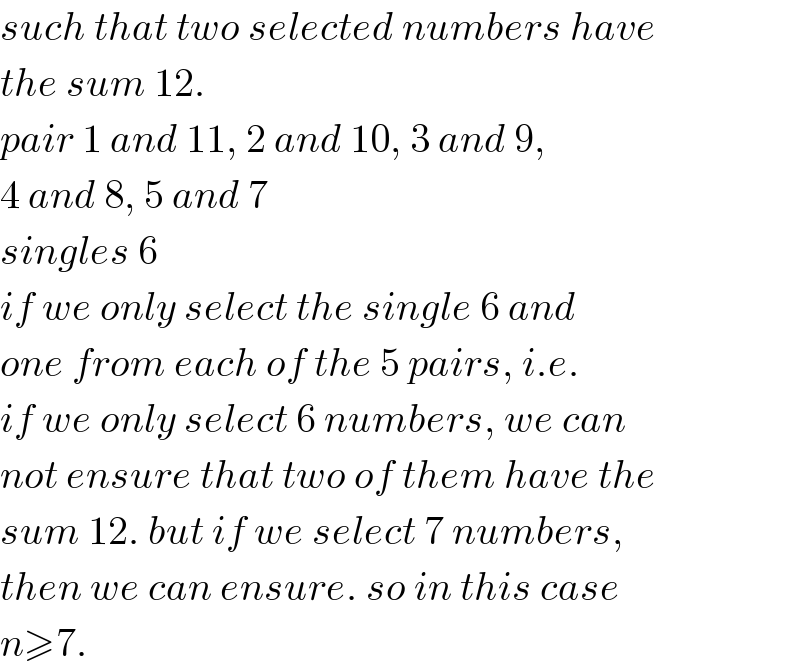
Question and Answers Forum
Previous in Permutation and Combination Next in Permutation and Combination
Question Number 112533 by Aina Samuel Temidayo last updated on 08/Sep/20

Commented by Aina Samuel Temidayo last updated on 08/Sep/20

Commented by Aina Samuel Temidayo last updated on 08/Sep/20

Answered by mr W last updated on 08/Sep/20

Answered by mr W last updated on 08/Sep/20

Commented by Aina Samuel Temidayo last updated on 09/Sep/20

